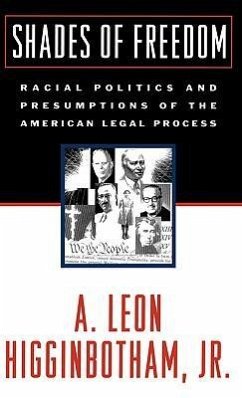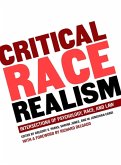In Shades of Freedom, Higginbotham provides a magisterial account of the interaction between law and racial oppression in America from colonial times to the present, demonstrating how the one agent that was entrusted to guarantee equal justice under the law - the judicial system - instead, more often played a dominant role in enforcing the inferior position of blacks, and, on some occasions, eradicated racial injustice. The precept of racial inferiority is central to this volume, as Higginbotham documents how early white perceptions of black inferiority slowly became codified into law. Perhaps the most powerful and insightful aspects center on a pair of famous Supreme Court cases, which Higgingbotham uses to portray race relations at two vital moments in our history. The Dred Scott decision of 1857 declared that under the United States Constitution, blacks were "so far inferior that they had no rights which the white man was bound to respect". Higginbotham reveals the tragedy that, after the Civil War, and even during the Reconstruction period, the courts construed the new Constitutional amendments with such hostility that the dream of freedom was buried by judges with black robes, politicians posing as statesmen, and vigilantes in white hooded robes. In the Plessy v. Ferguson decision of 1896, which Higginbotham terms "one of the most catastrophic racial decisions ever rendered", the Supreme Court legitimized racial segregation under the deceptive rationale of "separate but equal", which, in practice, became always separate and never equal. Higginbotham also documents the eloquent voices that opposed the openly racist workings of the system, from Reconstruction Congressman John R. Lynch to Supreme Court Justice John Marshall Harlan to African-American scholar W. E. B. Du Bois and Charles Hamilton Houston, William Hastie, and a few other lawyers - both black and white, Jew and Gentile - who confronted the legitimization of racism. To establish the nexus to decades of racism in the past, he asserts that, even today, racial bias still permeates the American consciousness. He shows how six recent events reveal that many public perceptions of black inferiority persist to this day.
Hinweis: Dieser Artikel kann nur an eine deutsche Lieferadresse ausgeliefert werden.
Hinweis: Dieser Artikel kann nur an eine deutsche Lieferadresse ausgeliefert werden.








